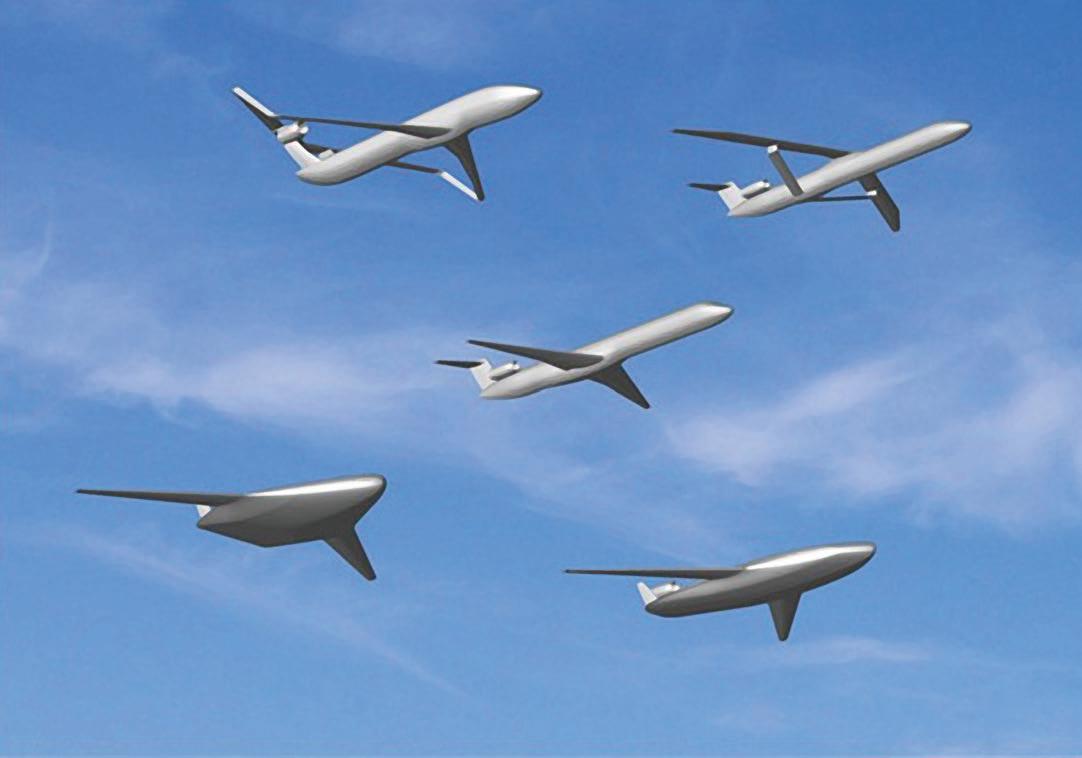Denemek ALTIN - Özgür
SUSTAINABLE AVIATION EXPERT
Muse Science Magazine for Kids
|November/December 2023
REDUCING AIRPLANES' CARBON EMISSIONS

Imagine stepping onto an airplane. Its shape, sleek and unusual, is unlike any other aircraft you've seen. The engines purr rather than roar, the takeoff feels smoother, and best of allit's mostly powered by biofuel. This is the future of air travel as seen by Professor David Zingg, a leading voice in the field of sustainable aviation.

Sustainable Air Travel
Zingg teaches at the University of Toronto Institute for Aerospace Studies. From 2006 to 2016, he guided the Institute as its director. Today, he leads the Institute's Centre for Research in Sustainable Aviation. Zingg is known for his innovative aircraft designs that push boundaries and promote sustainability. Like a sculptor shaping clay, Zingg works with the way air moves. Using computer models, he studies how air shapes itself around aircraft bodies. This understanding helps him reduce air resistance and design planes that glide smoothly through the air.
Toward the end of the 1990s, Zingg noticed that flight travel faced a huge challenge. The age of flying faster, higher, and further had changed into an era where the same things needed to be achieved but in a more sustainable way. Sustainability means using resources in a way that protects the planet and future generations. But it wasn't until the 2010s, when the negative impacts of burning fossil fuels became more widely accepted, that the idea of sustainability took hold.
Bu hikaye Muse Science Magazine for Kids dergisinin November/December 2023 baskısından alınmıştır.
Binlerce özenle seçilmiş premium hikayeye ve 9.000'den fazla dergi ve gazeteye erişmek için Magzter GOLD'a abone olun.
Zaten abone misiniz? Oturum aç
Muse Science Magazine for Kids'den DAHA FAZLA HİKAYE

Muse Science Magazine for Kids
ANIMAL FIREFIGHTER TO THE RESCUE
Can animals help manage the risks of deadly wildfires?
3 mins
Muse July 2025: The Story Behind Wildfires

Muse Science Magazine for Kids
FIRE DANGER
WHY THE RISK OF WILDFIRES KEEPS GROWING
4 mins
Muse July 2025: The Story Behind Wildfires

Muse Science Magazine for Kids
The Miller NEW Normal
WHAT TODAY’S WILDFIRES TELL US ABOUT OUR FUTURE
8 mins
Muse July 2025: The Story Behind Wildfires

Muse Science Magazine for Kids
WOMEN AND FIREFIGHTING: A GOOD FIT
Jessica Gardetto is a firefighter. Her father was, too. “I grew up with my dad coming home smelling like wildfire and covered in soot,” she says.
1 min
Muse July 2025: The Story Behind Wildfires

Muse Science Magazine for Kids
What is happening on your fingertips when they get all wrinkly in a hot tub?
—Felix G., age 10, Montana
1 mins
Muse July 2025: The Story Behind Wildfires

Muse Science Magazine for Kids
WHEN the SMOKE CLEARS
THE LINGERING EFFECTS OF THE RECENT PACIFIC PALISADES AND ALTADENA EATON FIRES
6 mins
Muse July 2025: The Story Behind Wildfires

Muse Science Magazine for Kids
PICKING TEAMS
Keep it fair with a strategy that relies on geometry.
2 mins
Muse July 2025: The Story Behind Wildfires

Muse Science Magazine for Kids
SHAN CAMMACK
WILDLIFE BIOLOGIST AND FIRE SAFETY OFFICER
3 mins
Muse July 2025: The Story Behind Wildfires

Muse Science Magazine for Kids
Scientists Create Mice With Woolly Mammoth-Like Fur
RESEARCHERS AT A COMPANY IN TEXAS ARE WORKING TO CREATE A LIVING ANIMAL THAT RESEMBLES THE EXTINCT WOOLLY MAMMOTH. Recently, they produced mice with traits of the large mammal. The mice all have coats with mammoth-like fur, and some of the small mammals also have genes that help them store fat. Both features would help the animals survive in the cold Arctic, where the woolly mammoth once lived.
1 min
Muse July 2025: The Story Behind Wildfires

Muse Science Magazine for Kids
Cool Sunshade Added to the Nancy Roman Space Telescope
THE NANCY ROMAN SPACE TELESCOPE IS A NEW TELESCOPE THAT NASA IS BUILDING AND WILL LAUNCH INTO SPACE, LIKELY IN EARLY 2027.
1 min
Muse July 2025: The Story Behind Wildfires
Translate
Change font size

